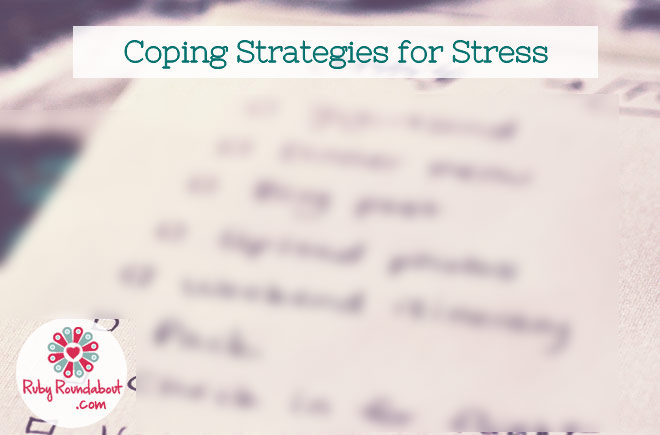
Coping Strategies for Stress
The best coping strategies for dealing with stress are simple: move into the middle of nowhere; renounce all of your worldly possessions; live in a tent or a shack; have as view possessions as possible; run if you see other people, and meditate every day for hours before you forage for food.
Well, sadly this approach won’t eliminate all stress from your life either. After all, you have to worry about being eaten by a bear, a bobcat, dying of exposure or starvation. Even if you tackle all of those problems in time, the isolation becomes a form of stress on its own. You may start to resent the way one certain bird always seems to be looking at you… you know as if to say thinks he’s better than you. Running from stress isn’t the answer. The only real solution is to learn to cope with stress the best you can.
We Respond Differently from One Another
We are all different and have varied past life experiences. Our responses are largely the byproduct of our past experiences, outlook on life, preexisting mental state, life and financial situation, health condition and even nutritional factors. Stress and our response to it, isn’t by any stretch of the imagination, “simple.” What causes us this issue and how we respond to it is a complex tapestry, and that is part of what makes it so difficult to reduce.
Ultimately, however, we are faced with a stark reality; we can’t run from all of our stress and we will respond to stress in some fashion. This is why coping strategies are so essential.
Number One – Meditation

If stress has an enemy it is meditation. The benefits of meditation are so diverse that it is truly amazing. Meditation reduces blood pressure, boosts immune system strength and response, reduces stress hormone levels substantially and can even prevent premature aging. If you want to quickly begin reducing your stress levels then you’ll want to start meditating.
Number Two – Exercise

What kind of exercise helps reduce stress? The answer is any kind of exercise, well, almost any kind. Exercise that usually results in injury isn’t a good idea, as that will cause more stress than it cures. So if you are getting lots of injuries, strains, pulls, broken bones and so forth from an exercise program, then change your program immediately.
That aside, exercise, even something as simple as walking is one of the key ways to reduce stress. Your body wants to exercise. In fact, even after a few weeks of exercise, even walking, it is possible to see an activation of specific genes in the body. Exercise and your body will respond in a positive fashion, and your stress levels will be reduced.
Number Three – Evaluate Your Diet

Diet and stress? Many people may be surprised to see the link between the two, but it is a very real one. Perhaps the best coping strategy there is for stress is to improve what you eat. Stress depletes the body of the very minerals it needs to stay calm, such as magnesium. Improving the nutritional value of your diet will in turn lead to an improvement in your ability to deal with things that previously freaked you out. Stressful situations will leave you feeling less drained.
Another reason that there is a link between diet and stress is that poor nutrition translates into poor health. Fast food and processed food is really nothing more than sugar, unhealthy trans fats, chemicals and pesticides all linked together into a very cheap, but profitable mixture.
Phrased another way, don’t eat the stuff, as it is actually more harmful for your overall health than you probably realise. Diet will impact your health and will lead to more medical problems ranging from something as seemingly simple as headache to more serious diseases. Serious medical illnesses bring with them a great deal of stress. Eating a healthy diet is one of the best ways to avoid one of the biggest stressors out there: illness!
These three stress coping strategies will help you transform both how you deal with stress and your life. Any steps that you can take to reduce your stress levels are worth the effort. You should approach stress reduction as an investment in you!
Recommended
-
Essential Oils for BeautyJune 26th, 2015
-
Essential Oil Remedies For Ear InfectionsJune 1st, 2015
-
Aromatherapy Bath SaltsDecember 3rd, 2014
-
Can Aromatherapy Be Used During Pregnancy?November 26th, 2014
-
Caring For Dry Skin with Essential OilsNovember 19th, 2014






